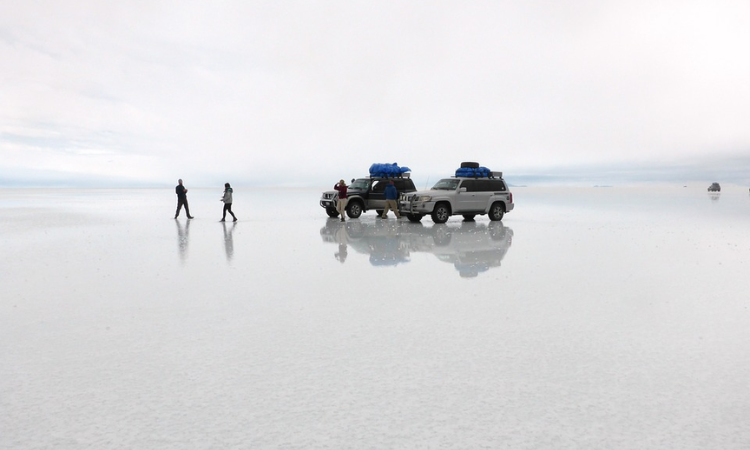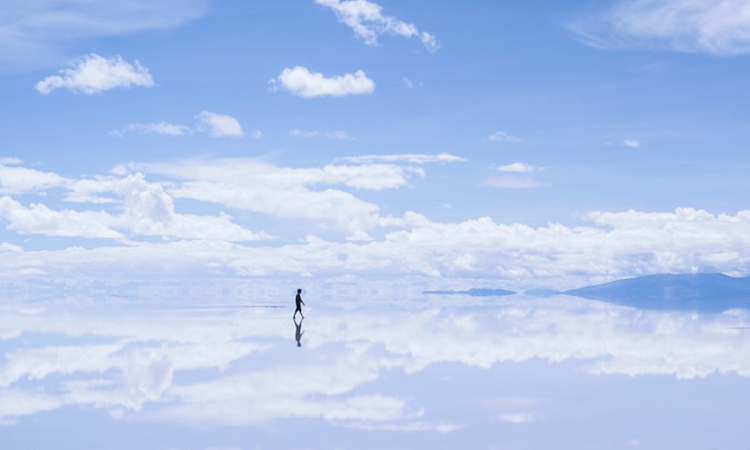Introduction:
Salar de Uyuni or the Salt Plains of Bolivia, renowned as the world’s largest salt flat, casts a spellbinding aura that beckons adventurers, nature enthusiasts, and photographers alike. Encompassing an expansive 10,000 square kilometers, this sea of salt unveils a surreal landscape that appears to extend limitlessly into the horizon. With the burgeoning tourism industry in Bolivia, it is imperative to underscore the responsible approach to exploring the Salt Plains, ensuring the preservation of this extraordinary natural wonder. Traveling to Bolivia is incomplete without exploring Salar de Uyuni, but be sure you do the same responsibly.
Understanding the Importance of Responsible Tourism:
Responsible tourism signifies making ethical choices that not only enrich the traveler’s experience but also contribute positively to the environment and local communities. In the context of the Salt Plains of Bolivia, responsible tourism is pivotal for safeguarding the delicate ecosystem of the area and upholding the cultural integrity of the local communities that have called this region home for generations.
1. Environmental Conservation:
The Salar de Uyuni is not merely a picturesque landscape; it is a fragile ecosystem boasting unique flora and fauna. Despite the salt crust appearing robust, it is, in fact, delicate, and the ecosystem is highly susceptible to human impact. Responsible exploration mandates a heightened awareness of the environment, staying on designated paths, and avoiding activities that could jeopardize the delicate balance of the ecosystem.
a. Staying on Designated Paths:
Crucial to responsible exploration in the Salt Plains is adhering to designated paths. Straying off these paths poses a threat, potentially damaging the salt crust and disrupting the intricate balance of the ecosystem. Local authorities have meticulously laid out specific routes for tourists, emphasizing the need to follow these guidelines to minimize the ecological footprint.
b. Avoiding Waste and Pollution:
Tourists must actively participate in waste management practices. Simple actions, such as proper disposal of trash and minimizing the use of single-use plastics, wield a significant positive impact on the environment. The distinctive characteristics of the Salt Plains make waste disposal particularly challenging, elevating the importance of responsible waste management.
2. Cultural Respect:
Beyond its natural wonders, the Salt Plains harbor indigenous communities, primarily the Uru people. Responsible exploration extends to respecting their culture, traditions, and rights. Engaging with local communities in a respectful and meaningful manner enriches the overall travel experience while contributing to the well-being of the people inhabiting this remote region.
a. Community Engagement:
Responsible tourists actively seek ways to engage with local communities positively. This may involve visiting local markets, interacting with artisans, and immersing in the cultural practices of the Uru people. By fostering a respectful exchange, tourists can contribute to the economic development of these communities while gaining a deeper understanding of the region.
b. Supporting Local Businesses:
Choosing locally-owned accommodations, restaurants, and tour operators becomes a cornerstone of responsible tourism. By supporting local businesses, tourists directly contribute to the economic well-being of the community, thereby helping sustain their traditional way of life.
3. Responsible Tour Operations:
Tour operators play a pivotal role in shaping the tourist experience. Responsible tour companies prioritize sustainability, safety, and cultural sensitivity in their operations. When planning a visit to the Salt Plains, it is indispensable to select tour operators committed to responsible practices.
a. Eco-friendly Transportation:
Responsible tour operators invest in eco-friendly transportation options, such as electric or hybrid vehicles, to minimize the environmental impact. This not only reduces carbon emissions but also ensures that the natural beauty of the Salt Plains remains unspoiled.
b. Educating Tourists:
A responsible tour operator goes beyond merely showcasing natural wonders; it incorporates educational components into their tours. Tour guides are well-versed in the ecosystem, local culture, and the significance of conservation. This educational aspect enhances the overall travel experience and encourages tourists to become ambassadors for responsible tourism.
Conclusion:
The Salt Plains of Bolivia stands as a testament to the marvels of nature, and their preservation demands a collective effort from both tourists and local communities. By adopting a responsible approach to exploration, visitors can actively contribute to the conservation of this extraordinary landscape while simultaneously respecting the cultural heritage of the indigenous communities. As travel to remote destinations like the Salar de Uyuni continues to surge, the importance of responsible tourism becomes increasingly evident. Through thoughtful and sustainable practices, travelers can ensure that future generations will have the opportunity to marvel at the beauty of Bolivia’s Salt Plains.
Planning a trip to Bolivia? Feel free to reach out to our experts and they will be happy to help.
 Toll Free (USA & Canada) +1 866 978 2997
Toll Free (USA & Canada) +1 866 978 2997







